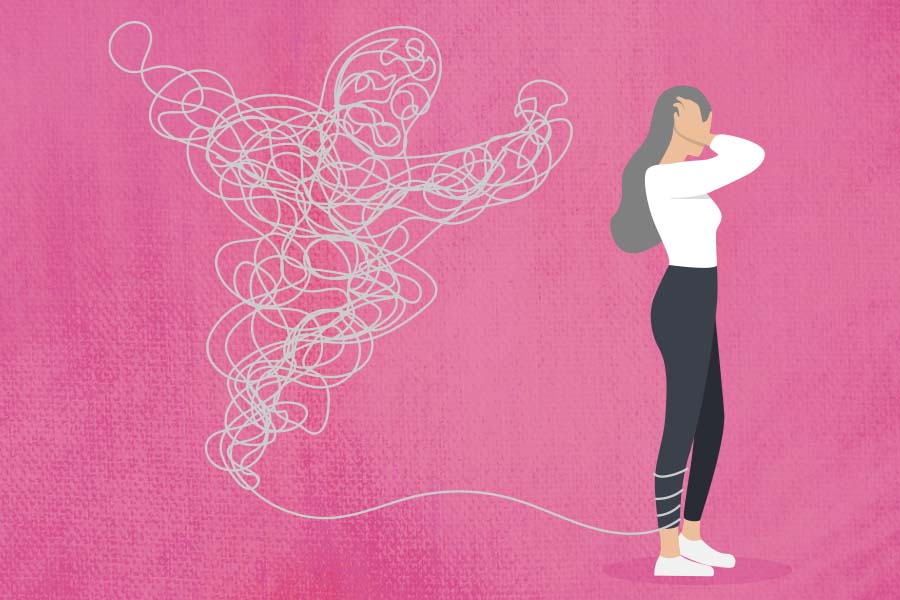
Panic disorder during menopause
Have you suffered from panic disorders during your menopause journey? Panic disorders are characterised by persistent panic attacks and include both physical and mental symptoms such as: shortness of breath, irregular heartbeat, being unable to relax etc. Panic disorders can arise or worsen during menopause due to the decline of ovarian hormone levels. This symptom can be deeply concerning and debilitating for women experiencing it. Below we have rounded up some ways to manage these symptoms and what precautions you can take to avoid intense episodes.
Preventing attacks
Panic attacks are usually brought about by stressful events. Working with a medical professional you can understand what might be contributing towards the attacks to understand what ‘triggers’ them. From this analysis you can work on ways to cope with these stressful situations.
Exercising releases endorphins, the feel-good hormone, into your body. Regular exercise can help you manage feelings of stress, and help prevent feelings of anxiety and panic attacks.
A healthy diet made up of healthy meals and snacks will help stabilise your blood sugar levels and ensure consistent energy throughout the day. Try to avoid caffeine, alcohol and drugs as ways to cope with your anxiety, as they can contribute to poor mental health.
How to handle a panic attack
When you are struck by a panic attack, acknowledge that you are one and that it’s a situation you need to ‘ride out’ until it has passed. You might find it helpful to have someone with you to reassure you that it will pass.
Practice breathing techniques or listen to a mindfulness meditation to help calm your mind until the feeling passes. You should find that you feel better after a few minutes, even if it takes a bit longer for the panic to fully subside.
If your panic attacks increase in frequency, or if you are worried about your mental health speak to your GP or other medical professional.
